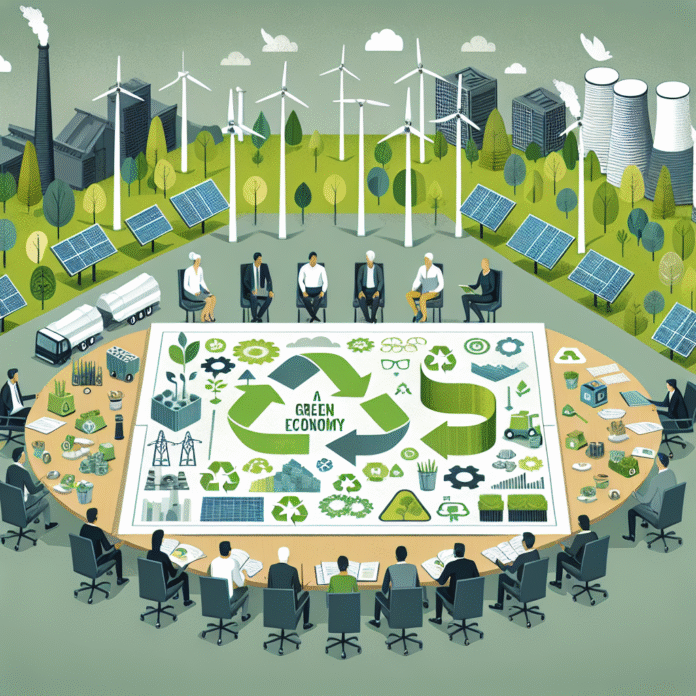Stakeholders Request Detailed Transition Guidelines for Green Economy
Stakeholders Demand Detailed Guidelines for Transitioning to a Green Economy
In recent discussions surrounding the shift towards a green economy, various stakeholders have expressed the urgent need for comprehensive transition guidelines. The call for a structured framework is driven by the recognition that transitioning to sustainable practices is not just a necessity for environmental preservation, but also a pivotal opportunity for economic growth.
The Importance of a Green Economy
A green economy emphasizes sustainable practices that reduce environmental risks and ecological scarcities. By focusing on renewable energy, efficient resource use, and sustainable agriculture, countries can foster economic development while addressing climate change. Stakeholders believe that clear guidelines are essential to facilitate this transition, ensuring that all sectors, from government to private enterprises, are aligned in their efforts.
Key Stakeholders Involved
The stakeholders involved in this initiative span a broad spectrum, including government agencies, non-governmental organizations, private sector representatives, and academic institutions. Each group brings vital perspectives and expertise to the table, underscoring the collaborative effort required to develop effective transition strategies.
Government agencies are tasked with creating policies that incentivize green practices, while NGOs often advocate for environmental justice and community engagement. Meanwhile, private sector actors are increasingly recognizing the benefits of sustainable practices, not only for compliance but also for enhancing their brand image and competitiveness.
Challenges in Transitioning
Despite the clear benefits, numerous challenges hinder the transition to a green economy. These include financial constraints, lack of technical expertise, and resistance to change within established industries. Additionally, there is often a disparity in resources and capacities between developed and developing nations, complicating global cooperation on green initiatives.
To address these challenges, stakeholders emphasize the need for targeted training programs, access to green financing, and international collaboration. Establishing best practices and sharing successful case studies can also serve as valuable resources for countries at different stages of the transition.
The Role of Technology
Technology plays a critical role in facilitating the transition to a green economy. Innovations in renewable energy, such as solar and wind power, are becoming more accessible and affordable, paving the way for widespread adoption. Moreover, advancements in energy storage and smart grid technology enable better efficiency and reliability in energy use.
Stakeholders advocate for increased investment in research and development to accelerate these technological advancements. By fostering innovation, countries can not only mitigate environmental impacts but also create new jobs and economic opportunities in emerging sectors.
Conclusion
The call for comprehensive transition guidelines for a green economy is a clarion call for coordinated action among all stakeholders. By addressing the challenges head-on and leveraging technology, nations can embark on a sustainable path that benefits both the environment and the economy. As the global community grapples with climate change, the development and implementation of robust guidelines will be crucial for ensuring a successful transition to a greener future.


